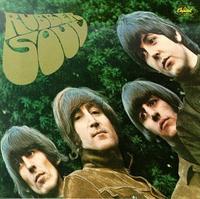Yesterday a blogger whose posts I always look forward to wrote about depression. Specifically, this person was giving a warning about what a depressed person wants least to hear. I quote...
"I took a note my doctor had written around to each faculty member I had that semester. All were understanding but one.. He told me "I had depression too, I just made myself be active and I got over it." I had close friends say the same thing. I still get angry thinking back at what that bastard told me."
Depression is perhaps the most misunderstood ailment of modern times. I'm not surprised that this person heard such a thing. I heard it too when I was suffering a pretty major episode a few years ago.
Then, this morning,
Speaking of Faith was all about depression.
Andrew Solomon, author of
The Noonday Demon, which I recently read, was a guest. Later, a member of my congregation, not knowing that I had heard it or read Solomon, mentioned that she heard a portion of the program and then proceeded to share about her own period of depression, years ago. Since arriving home from church I've read another blogger's casual mention of new meds, and linked back to a previous post to find out that those meds were for, you guessed it, depression.
This on top of the fact that I'm currently reading McMurtry's
Duane's Depressed which contains what I know from experience is a dead on accurate depiction of a man's unknowing struggle with depression.
I don't pretend to know why we seem to walk into themes every once in a while, but I am not a big believer in coincidence, and so when convergences like these happen the very least I can do is reflect on them.
During my own depression, people were so unwilling to understand what I was going through (that's the word too,
unwilling) that I chose to deny that I was depressed. Some months later, when a psychologist finally told me that I was clinically depressed and showed me the scores on an
MMPI to prove it, I burst into tears of shame right there in her office. My first question, which seems infantile in retrospect was, "Can a depressed person still do ministry?"
Her answer was, "With treatment." Which was technically correct and
exactly what I didn't need to hear. I wanted her to say, "Of course!" and then list some people in ministry who suffered from depression. She didn't.
But I did eventually get my list. At the office (at my former church), almost as if by magic, other staff members started coming to me to confess that they thought they might be depressed. One admitted that she had been in treatment for years but had told almost no one because the very few people she mentioned it to, long before, started avoiding her as if her depression might be catching. It was astonishing. One colleague walked right up to me and said, "I don't have any motivation for this." I asked, "For what?" and he answered, "This job."
Depression changed me, or perhaps it simply revealed a previously ignored truth about me. I'm not the same person anymore. My depression was deep but it was an episode and after a period of counseling, I was able to continue on without further treatment--for now; depression is sneaky like that. That whole period is never far from my thoughts. It's something I carry around with me like a scar. I don't like it and I don't want it, but life never asked permission.




